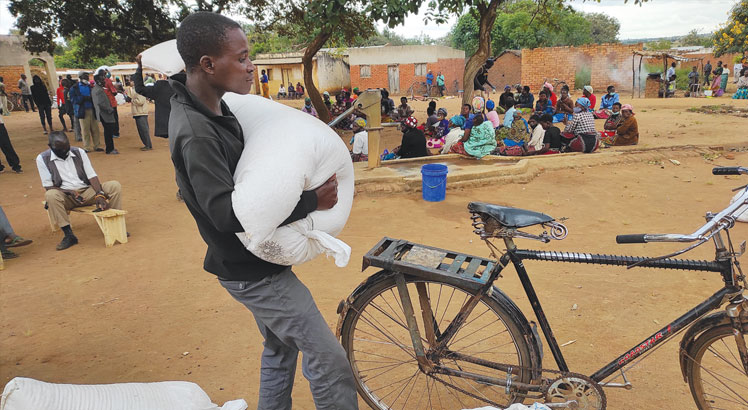Implementation of key reforms to transform the mining sector through enhanced investment and curbing illegal mining and trade has missed deadlines, raising questions about government’s commitment to shape the industry into an economic force.
Nation on Sunday has established that at the expiry of the reforms contract between the Ministry of Mining and President Lazarus Chakwera in June this year, a planned establishment of the K5 billion Malawi Mining Investment Company still remains a pipeline dream.
The two sides signed the contracts in 2020 after the Tonse Alliance-led government came to power in the fresh presidential elections.
Chakwera has been hyping the mining industry as having potential to transform the country’s economy if well managed.
In the contract there were four reforms. The mining company creation fell in one of the most crucial reform areas pinned on improving institutional governance structures.
It was aimed at addressing lack of decentralisation to mineral hotspot districts and lack of mining investment vehicle in sector, curb illegal mining and increased mining investment.
Reforms also set to regulate artisanal miners such as these
The company, among others, was set to increase local revenue generation, create employment opportunities, enhance mineral value addition efficiency in mineral marketing and increase mining investment.
Nation on Sunday has also found, through interviews with local government authorities, that the central government has not devolved its stranglehold on mining operations at the district level.
Said Salima district commissioner Grace Chirwa in an interview yesterday: “Currently, we don’t have an office that looks after the mining sector at district level. We would have loved to have one because there are a lot of mining activities in the district.”
The other reform area is on improving provision of geological and mining services for sustainable development. It sought to ensure “availability and improved accessibility of geological and mining data.”
Issues to be tackled under it included addressing poor conditions of offices, lack of modern laboratories and inadequate equipment and outdated geoscientific data.
It would lead to rehabilitation of mines and geological survey and regional geological survey offices and mineral laboratories. Additionally, it would see the development of a web-based geological data information management system.
All these projects have not been fully implemented.
In an interview, parliamentary committee on Natural Resources and Climate Change Welani Chilenga said he was not impressed with reforms implementation.
“We are not making any progress. In fact, we are
retrogressing. Previously, we had the mineral resources which were not yet extracted. That was far much better because they were still in the ground and one time our children and grandchildren would have used them.
“However, now they are being exploited. [Foreigners] are the ones who are benefiting through illegal mining,” he said.
The reforms have also been designed to reform the laws and regulations governing the mining sector.
But Chilenga said he was surprised that authorities blame mining laws as the reason behind the lack of progress in the sector.
“We passed the new Mines and Minerals Act in 2019 which is a very good piece of legislation. Unfortunately, the ministry of Mining has been unable to implement it. Totally failing.
“Mind you it took over 12 years to develop the Act with a lot of donor funding,” Chilenga said.
The Ministry of Mining had not responded to our questionnaire as we went to press yesterday. However, the responsible minister Albert Mbawala in a recent National Assembly meeting acknowledged that some reforms implementation have been delayed.
In his statement on the progress on mining development in the country, Mbawala blamed lack of resources as some of the key challenges.
“The Ministry of Mining continues spearheading the establishment and operationalisation of a State-owned mining investment company whose mandate shall be promotion of the optimal development of the mineral sector and maximisation of the national mineral revenue and social benefits.
“However, in order for this to materialise, the Ministry requires K5 billion as initial seed capital for the Company. To this effect, the Ministry has submitted a funding request to the Ministry of Finance for consideration during this 2022/23 Mid-Year Budget Review. Indisputably, the operationalisation of this Company will act as a catalyst for the mineral sector growth and development.
Government has also not achieved breakthroughs in reform area 3 which centered on supporting the development and growth of the small scale-based mining industry.Chakwera said Malawi had issued over 250 mining licences but has no proper mining industry or returns to speak of.
Minerals found in Malawi include uranium, gold, bauxite, coal and phosphates. The country has a proliferation of small-scale miners
The post Mining reforms stutter appeared first on The Nation Online.
 Moni Malawi
Moni Malawi 

